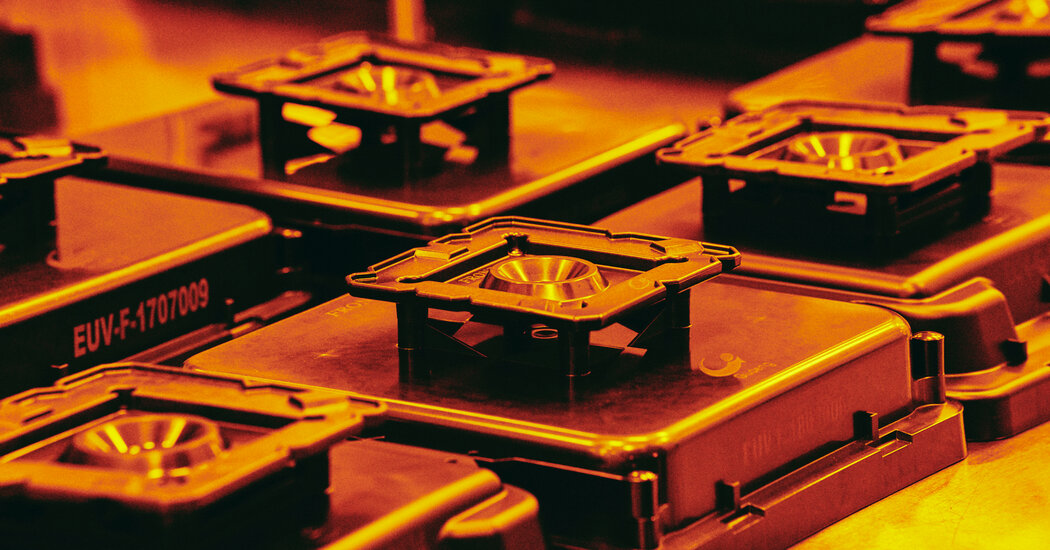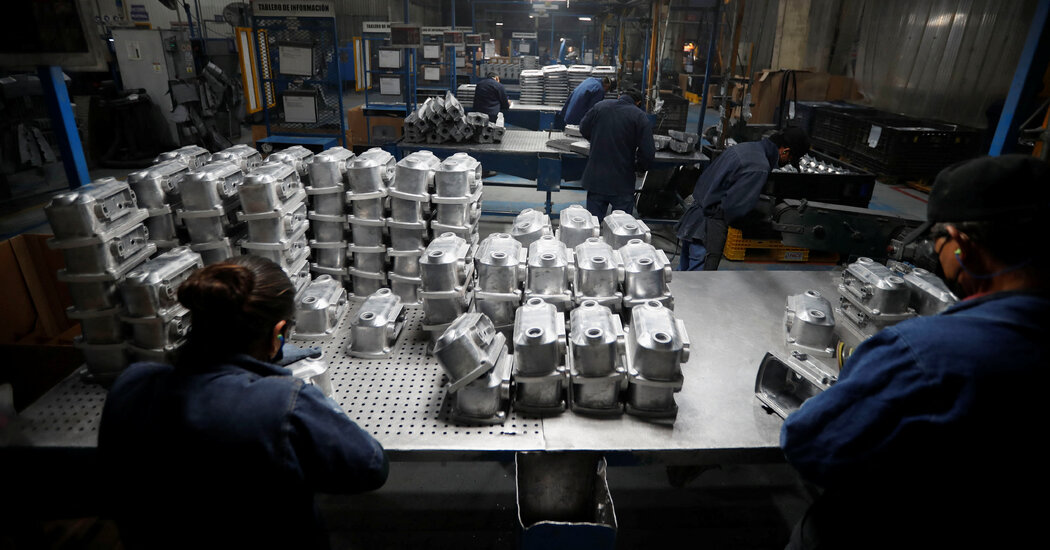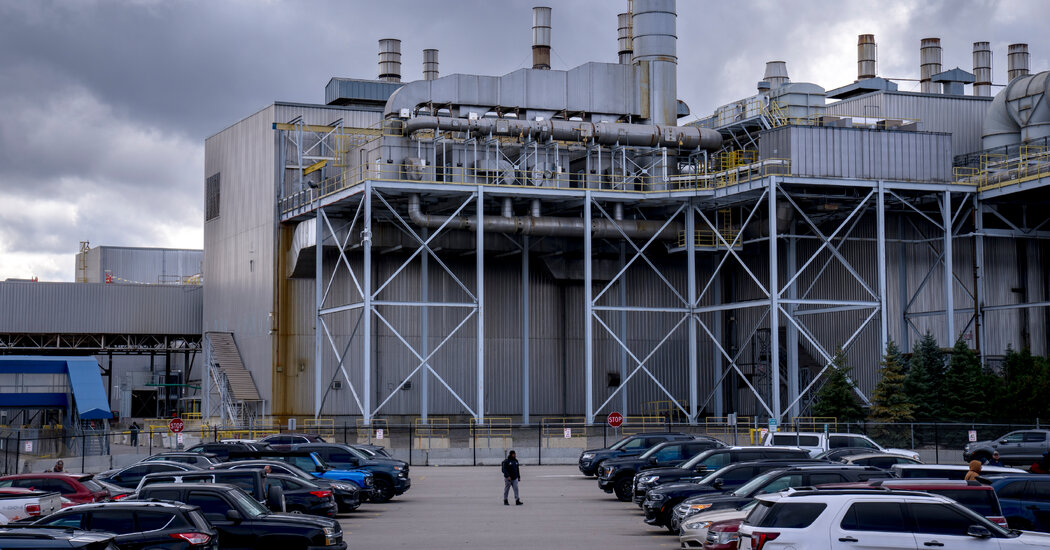
Smooth white boxes, similar in size to large cargo vans, have become the focal point of the technological conflict between the United States and China. These boxes, known as lithography machines, play a crucial role in printing intricate circuitry on computer chips. China, aiming to develop its own chip-making industry, relies on these machines, but does not possess the advanced technology to produce them. In response, the United States has taken steps to limit China’s access to these machines, preventing global companies from sending them to China without a special license. This move could deal a significant blow to China’s chip-manufacturing ambitions and showcases a unique flexing of American regulatory power, as the U.S. government asserts its ability to regulate equipment manufactured outside its borders.
One of the main companies affected by these restrictions is ASML, a Dutch firm that dominates the lithography market. U.S. rules now prohibit the shipment of certain machines that use deep ultraviolet (DUV) technology, mainly produced by ASML. While ASML has stated its compliance with the regulations, the company is not happy about the export controls as they hinder its business opportunities. The Dutch government, expressing shared security concerns with the United States, emphasized that each country has the right to impose export restrictions. However, European government officials are torn between aligning with the United States against China and safeguarding their own companies’ interests in the Chinese tech market.
The technology provided by companies like ASML has given the United States and its allies an advantage over China in terms of computing power and military capabilities. While China is investing heavily in the semiconductor industry, its chip-making equipment is still years behind that of ASML and other key suppliers in the United States and Japan. However, the attempt to weaponize this advantage against China strains alliances, as European governments are cautious about blocking their companies from the Chinese market.
China’s use of ASML’s deep ultraviolet lithography technology in making advanced chips has raised concerns among U.S. officials who hoped to prevent China from reaching certain technological milestones. This prompted the U.S. government to establish new export control rules to address the urgency of the situation. While these controls may not immediately cripple China’s most advanced chip-makers, they will significantly restrict their ability to manufacture cutting-edge semiconductors.
ASML continues to maintain strong business relations with China, with sales to China accounting for a large portion of its global total. However, analysts project that the new export controls could result in a 10 to 15 percent reduction in ASML’s China revenues next year. Additionally, other equipment suppliers, such as Applied Materials and Lam Research from the United States, are also impacted by the restrictions.
It is crucial to note that these lithography machines heavily rely on regular software and maintenance support to ensure continuous chip production. Therefore, the restrictions will likely lead to manufacturing problems for Chinese companies in the future. Lam Research and Applied Materials, as well as ASML, are carefully assessing the potential impact of the new rules on their respective businesses.
RELATED POSTS
View all


